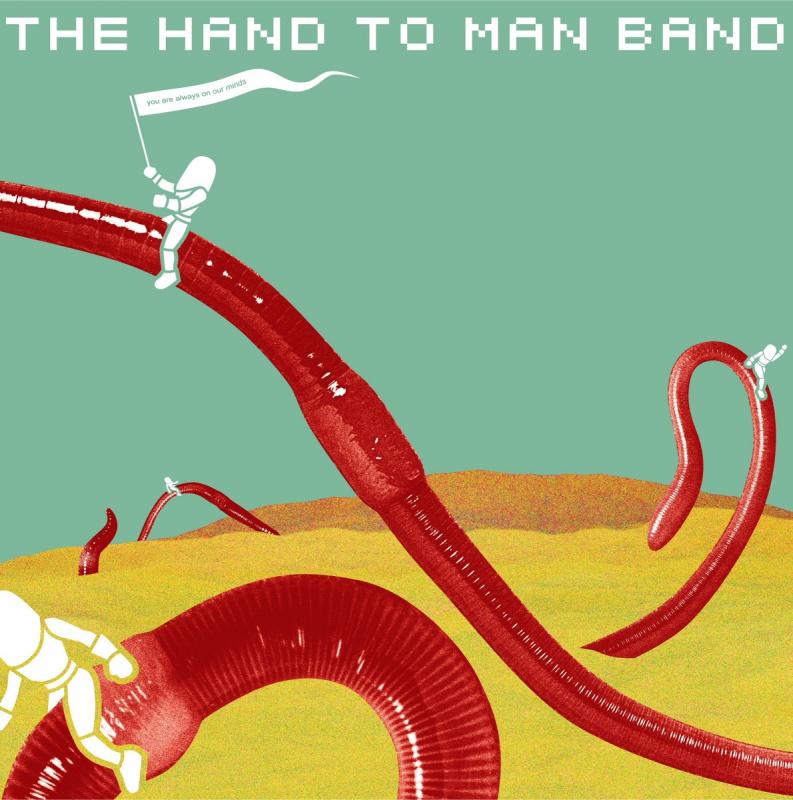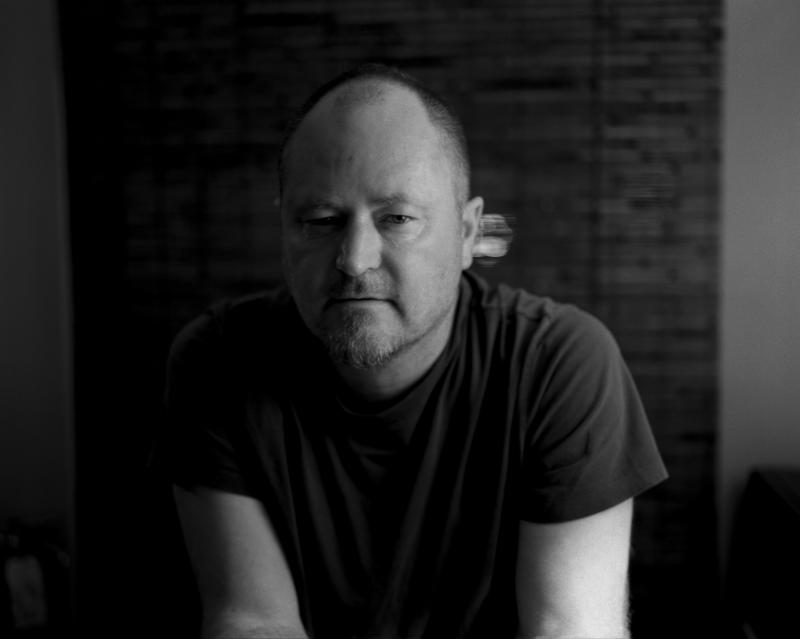Home » Jazz Articles » Interview » Thollem McDonas: The Beauty of Never Going Back Home
Thollem McDonas: The Beauty of Never Going Back Home
TM: No, actually, John and I did an album [All for Now (Dromos Records, 2012)], which we recorded the day after we performed the live soundtrack for Martha's film at SFMOMA. It's on a label called Dromos Records, based in Portugal. They do everything by hand, all in limited quantities.
AAJ: An artisanal record label!
TM: Yes, totally artisanal. So this is our second recording together. And we had this very specific concept and very elaborate overall structure around the music. We were going to record a bunch of large pieces, and these were going to be surrounded by smaller, shorter pieces which were, in turn, going to be surrounded by even smaller shorter pieces. And the smaller pieces were going to be repeated throughout the album, but in different ways. We had it all mapped out. So we did the recordings, but then we lost the notes. And here we were with all of this music recorded, and no idea—for the life of us—of how it was all supposed to be put together. It's funny, because what you're hearing was created by a process that, itself, cannot be reproduced! We created the music using a very fixed set of ideas that we essentially forgot, and created an entirely different album based on this disparate material.
AAJ: You're right, that is an interesting process... [laughs]
TM: [laughs] Yeah, really interesting. There's absolutely no way we could repeat this unless we somehow hit each other on the head simultaneously and got amnesia...
AAJ: ...so you'll continue collaborating [laughs].
TM: Oh yeah [laughs]. We're also working together in the Hand to Man Band, which is me, John, and former Minutemen bassist Mike Watt. Tim Barnes was the original drummer, but now we have Mike Guarino on drums. We just recorded our second album together.
AAJ: So, how many projects do you have running in parallel?
 TM: There are so many I haven't mentioned yet. We've just touched on a few of them here. I've got a great trio, MAGIMC, in Italy with [saxophonist] Edoardo Marraffa - Tonino Miano and [percussionist] Stefano Giust, and another one called the Soar Trio with [saxophonist] Skeeter Shelton and [bassist] Joel Peterson that's based in Detroit. I'm working with [saxophonist] Rent Romus in the Bloom Project, which has several records out. There's Electric Nashville, with [guitarist] Ed Pettersen, [violinist] Tracy Silverman, [vocalist] Ryan Norris, and Dylan Simon on electronics. I'm continuing to collaborate with [bass clarinetist] Arrington de Dionyso on 10,000 Tigers. It's music that we describe as being relentlessly ecstatic, and it is, man! We performed at the Cecil Taylor festival last year at Issue Project Room.
TM: There are so many I haven't mentioned yet. We've just touched on a few of them here. I've got a great trio, MAGIMC, in Italy with [saxophonist] Edoardo Marraffa - Tonino Miano and [percussionist] Stefano Giust, and another one called the Soar Trio with [saxophonist] Skeeter Shelton and [bassist] Joel Peterson that's based in Detroit. I'm working with [saxophonist] Rent Romus in the Bloom Project, which has several records out. There's Electric Nashville, with [guitarist] Ed Pettersen, [violinist] Tracy Silverman, [vocalist] Ryan Norris, and Dylan Simon on electronics. I'm continuing to collaborate with [bass clarinetist] Arrington de Dionyso on 10,000 Tigers. It's music that we describe as being relentlessly ecstatic, and it is, man! We performed at the Cecil Taylor festival last year at Issue Project Room.I've got a quartet of incredible Italian string players in Daniele Roccato, Francesco Dillon and Marco Rogliano. We've got an album coming out on Setola Di Maiale. Stefano Scodanibbio put this group together not long before he died. Also a duo album with [percussionist] Gino Robair on the same label. I've got a duo album with Lukas Ligeti coming out on Leo Records and a duo album with [guitarist/vocalist] Sabrina Siegel as well. There's also a new project with The Stooges sax man Steve Mackay, some solo explorations and performing live to Martha's films in a full scale performance called Triumph Of The Wild. I've got a new band with Brian Chase and Todd Clouser called Hot Pursuit Of Happiness; we're recording in August. I'm also in Matthew Barney's newest film, which was shot in Detroit, and I've just started talking about making a feature length film as a collaboration between Postcommodity and the Estamos Project.
AAJ: It's just endless... how do you keep it all going?
TM: Well, Angela and I work a lot; pretty much relentlessly. We collaborate on the travel and documentation, and we're compulsively working on multiple projects; perpetually on the road, participating with a wide of array of artists and communities. It's also very difficult financially as an independent artist. We are really just barely breaking even financially, so we are always seeking new ways to expand our audience and this continually brings out new ideas. Actually, Angela and I have been thinking of spending a year in one place so we can compile and archive our accumulation of videos, recordings, photos, and interviews of musicians and artists in the various communities that we've participated in during the last 6 years of perpetual touring. We're also writing a book and considering an interactive installation that would, itself, eventually go on tour. This would be a real happening, both experiential and educational. We think our unique perspective and tons of documentation will be beneficial to many people!
AAJ: You are doing everything right, coming up with innovative ideas, still dreaming big, and yet you're barely breaking even.
TM: We are! We're doing everything right. I get consistently great reviews internationally, and I think people need to know—especially people outside of the music world—how difficult it really is for musicians and other artists just to get by, let alone make it, in today's world. They may not want to hear about it...
AAJ: And as the means for acquiring music and archiving music are changing, no one seems to think about how an artist is going to get paid for what they're producing.
TM: Yes, that's correct. And musicians are stubborn. We don't want to admit that albums are becoming insignificant, for instance.
AAJ: ...a lot of us are still dealing with the obsolescence of the album. Online music sources are very much attuned to selling individual songs.
TM: And there's free music everywhere, available for download. We're bombarded with content from the internet. And can we stop it? Should we try to? I don't believe it should be stopped, or can be. We, as musicians and artists, must learn to adapt. I think that the information needs to be free. It needs to be out there. After I die, what do I want my life to mean? I want my stuff out there. In terms of making money off of it, aside from providing for myself and Angela, having health insurance, and not suffering too much, there's very little I really care about, money- wise. But what I really want to do, ultimately, is save the world [laughs].
AAJ: [laughing]...and music is, after all, the healing force of the universe.
TM: Well, there's one more thing I'd like to mention, concerning saving the world [laughs], because we do travel perpetually, living out of backpacks. I play a lot of concerts, night after night after night in a different city, and moving on. Sometimes we're able to stay in one place for a bit—when I'm giving a workshop, for example. Sometimes I can stay for a week or two and really collaborate with local musicians, artists, filmmakers, dancers, and so on, and develop projects together. As a result, I have projects, ensembles, bands all over Europe and North America. And the beauty of that, philosophically, is that I never go back home after a tour. I'm continually moving forward.
Of course, I return to places that I've been to before, but I'm always moving forward, and never going back. For me, this is a very important aspect of my work. I've been able to establish deep and lasting relationships with people all over. I feel that this is another aspect of my activism that branches out from what I've done in the past. So many of the answers to these bigger questions we've touched on can be found when communities cooperate. Cooperation over competition. Because of my lifestyle, I can really participate in a wide variety of communities and often act as a conduit between them.
By constant traveling, being constantly in motion, perpetually crossing borders—musically, culinarily, linguistically, ethically—is something you can't replace with technology. You can go online, of course, and hear music from anywhere and look at pictures and videos of what those places are like, but that doesn't even come close to the experience of actually being in a different country, walking down the street. When you're there, you have to communicate somehow, and observe the local customs. And if you want to go to places and play improvised music, you become aware of the culture of the improvising musicians within each of those communities. Because they're different everywhere you go. There are different approaches, and different ways of interacting, within each of these communities.
AAJ: Do you find that this sense of community is affecting other musicians? I get the sense that a lot of young jazz musicians, for example, are getting in touch with their own roots in a very fundamental and profound way. It's all leading to some very interesting and beautiful music.

TM: Jazz is America's classical music. It's also America's folk music. It's so deeply rooted in us and, as Americans, we have a very deep reverence for it. Which we should. In Europe, they have a reverence as well, but they hear it differently than we do. And, if you think about all of the American musicians who've actually had to move to Europe in order to survive, they're all on the cutting- edge of music. And that's where a lot of the influences come from in European jazz: from the real innovators. The ones who couldn't make it in the States because their music was too innovative. So many incredible musicians have wound up in Europe...
AAJ: ...only to record albums for BYG [laughs]...
TM: [laughs] That's right!
Tsigoti, Read Between The Lines...Think Outside Them (Post- Consumer, 2013)
Bad News From Houston (with John Dieterich), In The Valley Of The Cloudbuilder (Post-Consumer, 2013)
Thollem McDonas, Dear Future: Archival recordings from 1983- 1989 (Wild Silence Records, 2013)
The Whistling Joy Jumpers (with Jad Fair & Brian Chase), Surprising Wooden Clocks (Thick Syrup Records, 2013)
Estamos Trio, People's Historia (Relative Pitch Records, 2013)
Soar Trio, The View From Up (Edgetone, 2013)
Thollem McDonas, William Parker and Nels Cline, The Gowanus Session (Porter Records, 2012)
The Hand To Man Band, You Are Always On Our Minds (Post- Consumer, 2012)
Tsigoti, The Imagination Liberation Front Thinks Again (Post- Consumer, 2012)
Estamos Trio, JimpaniKustakwaKaJankwariteecherï (Edgetone, 2011)
Thollem McDonas and Arrington DeDionyso, Ten Thousand Tigers (Pine Cone Alley, 2011)
Thollem McDonas, Gone Beyond Reason To Find One (Edgetone, 2010)
Thollem McDonas and Stefano Scodanibbio, On Debussy's Piano And... (Die Schachtel, 2010)
Thollem McDonas, Gigantomachia (ESP-Disk, 2009)
Thollem McDonas and Nicola Guazzaloca, Noble Art (Amirani Records, 2009)
Thollem McDonas, Two Revolutions—Box Deserter (Edgetone, 2008)
Tsigoti, The Brutal Reality Of Modern Brutality—War Is Terror, Terror Is War (Edgetone, 2008)
Thollem McDonas and Arrington DeDionyso, Intuition, Science, And Sex (Edgetone, 2008)
Thollem McDonas, Somuchheaven Somuchhell (Saravah, 2008)
Bloom Project, Prismatic Season (Edgetone, 2008)
Thollem McDonas, Racingthesun Chasingthesun (Creative Sources, 2008)
Thollem McDonas, Poor Stop Killing Poor (Edgetone, 2007)
Thollem McDonas and Edoardo Ricci, Sono Contento Di Stare Qua (Edgetone, 2006)
Thollem McDonas, Nuclearbomb Cavepainting (Pax Recordings, 2006)
Thollem McDonas and Rick Rivera, I'll Meet You Halfway Out In The Middle Of It All (Edgetone, 2006)
Thollem McDonas, Rent Romus, Jon Brumit, and Steven Baker, The Bloom Project (Edgetone, 2006)
Thollem McDonas and Rick Rivera Everything's Going Everywhere (Edgetone, 2005)
Tags
Thollem McDonas
Interview
Dave Wayne
United States
Satoko Fujii
Tsigoti
Rent Romus
Nels Cline
William Parker
Rick Rivera
McCoy Tyner
Elvin Jones
Pharoah Sanders
John Cage
Lou Harrison
Zappa
Fred Van Hove
Misha Mengelberg
Alexander von Schlippenbach
Cecil Taylor
Andrew Hill
Thelonious Monk
Brian Chase
Clifford Allen
Thurston Moore
Wilco
Pauline Oliveros
Joan Jeanrenaud
Kronos Quartet
Vinny Golia
Mike Watt
Edoardo Marraffa
Gino Robair
Lukas Ligeti
Todd Clouser
PREVIOUS / NEXT
Support All About Jazz
 All About Jazz has been a pillar of jazz since 1995, championing it as an art form and, more importantly, supporting the musicians who make it. Our enduring commitment has made "AAJ" one of the most culturally important websites of its kind, read by hundreds of thousands of fans, musicians and industry figures every month.
All About Jazz has been a pillar of jazz since 1995, championing it as an art form and, more importantly, supporting the musicians who make it. Our enduring commitment has made "AAJ" one of the most culturally important websites of its kind, read by hundreds of thousands of fans, musicians and industry figures every month.




















